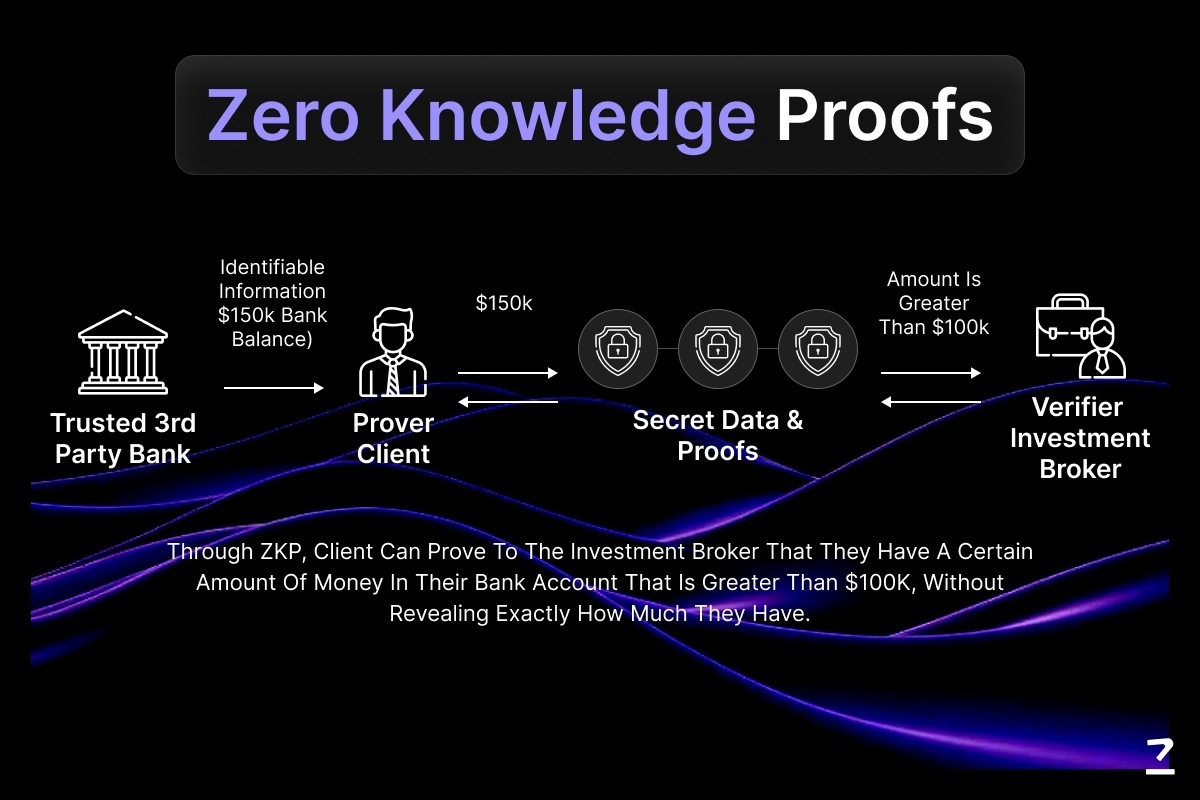In a world increasingly dominated by data surveillance, blockchain emerged with the promise of transparency and decentralization. But transparency, while critical for trust, often comes at the cost of user privacy—a paradox that Web3 is now confronting head-on. Enter Zero-Knowledge Proofs (ZKPs), a groundbreaking cryptographic technique that may hold the key to resolving this contradiction.
Imagine proving you know a secret without revealing the secret itself. That’s the power of zero-knowledge proofs. As Web3 accelerates—from DeFi protocols to DAOs to NFT marketplaces—ZKPs are positioning themselves as the cornerstone of privacy-preserving technologies, empowering users with control over their data while maintaining trust and verification.
“In Web3, privacy is not an option—it’s a necessity. And zero-knowledge proofs are the technology that could make it possible.”
Let’s break down what zero-knowledge proofs are, how they work, and why they’re crucial to the next evolution of the decentralized internet.
What Are Zero-Knowledge Proofs (ZKPs)?
A Zero-Knowledge Proof is a cryptographic method by which one party (the prover) can prove to another party (the verifier) that they know a value or a piece of information, without revealing the actual data itself.
The idea was first proposed in the 1980s by Shafi Goldwasser, Silvio Micali, and Charles Rackoff—visionaries whose work laid the foundation for modern cryptography. But it wasn’t until recently, with the rise of blockchain and Web3, that ZKPs have become a practical tool for real-world privacy.
In technical terms, ZKPs must meet three conditions:
- Completeness: If the statement is true, an honest verifier will be convinced.
- Soundness: If the statement is false, the verifier won’t be misled by a dishonest prover.
- Zero-Knowledge: No information about the actual secret is revealed in the process.
“Prove it, without showing it”—that’s the essence of zero-knowledge.”
How Zero-Knowledge Proofs Work (Without the Math Overload)
Let’s use a real-world analogy.
Imagine you’re trying to prove that you know the password to a locked door in a circular cave. The verifier waits outside while you enter either path A or path B. Once inside, the verifier shouts which path you should return through. If you really know the password (which opens the door between A and B), you can comply regardless of which exit is requested. If not, you’d only have a 50% chance of guessing correctly.
Repeat this enough times, and the verifier becomes convinced that you indeed know the password—without ever hearing what it is.
In blockchain, similar interactions are encoded in smart contracts, enabling privacy without sacrificing trust or security.
There are two main types of ZKPs in use today:
- zk-SNARKs (Succinct Non-Interactive Arguments of Knowledge)
- zk-STARKs (Scalable Transparent Arguments of Knowledge)
Both enable private transactions and scalable computations—but differ in terms of speed, transparency, and cryptographic assumptions.
Why Privacy Matters in Web3
The early vision of Web3 promised user empowerment, decentralization, and data sovereignty. But today’s blockchain systems—particularly public chains like Ethereum—are radically transparent. Every transaction, wallet address, and smart contract interaction is publicly visible.
While this ensures trust and immutability, it also poses a significant privacy risk:
- Would you want your salary, spending habits, or voting behavior visible to the world?
- Can enterprises adopt blockchain if all internal operations are exposed?
This is where ZKPs shine. They allow developers to:
- Hide transaction values or participants while proving validity
- Enable private smart contract execution
- Build compliant, auditable systems without compromising user confidentiality
“In Web3, we need transparency of rules—not exposure of users.”
ZKPs in Action: Real-World Use Cases
Zero-knowledge proofs are already being implemented in live blockchain projects, signaling the beginning of a privacy-first future.
1. Private Payments
Projects like Zcash use zk-SNARKs to enable shielded transactions, where sender, receiver, and amount remain confidential. This addresses a core limitation of Bitcoin and Ethereum, where all financial activity is public.
2. Scalable Rollups
zk-Rollups, such as those built by StarkWare and zkSync, batch thousands of transactions off-chain and post a single proof on-chain. This not only enhances privacy but also massively improves scalability and reduces gas fees—a win-win for developers and users.
3. Identity and Authentication
Platforms like Polygon ID are leveraging ZKPs to allow users to prove credentials—like age, citizenship, or professional status—without revealing personal details. Think KYC compliance without data leaks.
4. DAO Voting
In decentralized governance, ZKPs enable anonymous yet verifiable voting, preventing coercion or bribery while maintaining integrity.
“Privacy isn’t secrecy—it’s control. And ZKPs are putting control back in users’ hands.”
Challenges and Limitations
While promising, ZKP implementation is still maturing. Some key challenges include:
- Complexity and Computation: ZKPs are computationally intensive. Though zk-STARKs improve scalability, they require advanced cryptographic expertise.
- User Experience: Integrating privacy in a seamless, intuitive way remains a hurdle for mass adoption.
- Regulatory Gray Areas: Privacy-enhancing tools often raise concerns with regulators around money laundering and compliance. The key will be balancing privacy with auditability.
The Road Ahead: ZKPs and the Web3 Privacy Renaissance
As Web3 infrastructure matures, ZKPs are becoming a foundational layer for both privacy and scalability. They are helping transform blockchain from a public ledger into a versatile platform for secure, private, and programmable interactions.
What’s on the horizon?
- zkEVMs: Zero-knowledge-compatible Ethereum Virtual Machines are enabling entire smart contract ecosystems to run with built-in privacy.
- Interoperability: Cross-chain ZKP applications will allow users to carry privacy across networks.
- Mainstream Adoption: As enterprise and consumer-facing apps seek compliance and confidentiality, ZKPs could become non-negotiable.
The shift won’t happen overnight. But as blockchain evolves from raw infrastructure to real-world utility, privacy won’t just be a feature—it will be a fundamental right.
Final Thoughts: Privacy by Design, Not by Exception
Zero-knowledge proofs aren’t just another crypto trend—they are a paradigm shift in how we think about verification, trust, and digital interaction. In the coming years, they will underpin everything from private finance to decentralized identity to secure voting.
In an age where surveillance capitalism dominates Web2, Web3 must offer a better alternative. That alternative is one where users control their data, prove their rights, and maintain their privacy—all without needing to trust centralized gatekeepers.
“ZKPs aren’t just the future of privacy—they’re the foundation of a freer, fairer internet.”










